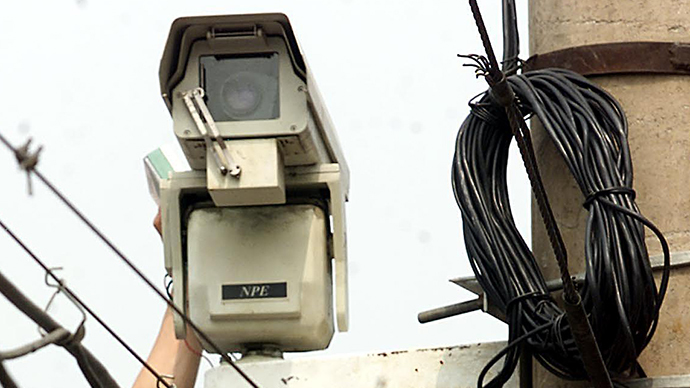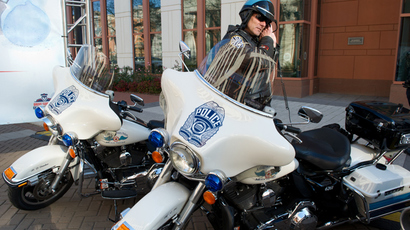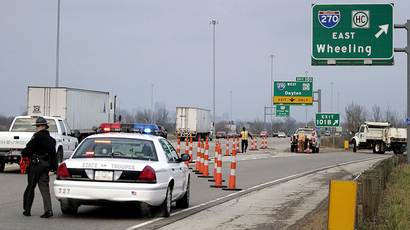Feds say traffic camera vendor bribed Chicago official to boost city surveillance system

The former CEO of a red light camera vendor and a former Chicago official were indicted last week on federal corruption charges for a decade-long bribery scam during which the city became a poster child for the surveillance cameras in the US.
The indictment unsealed last Wednesday names former Redflex chief executive officer Karen Finley and John Bills, former deputy commissioner for the Chicago Department of Transportation, as well as Bills’ friend and Redflex contractor Martin O’Malley, as part of the scheme that saw the better part of $2 million funneled to Bills after the Chicago official worked with the company to win a lucrative contract for the cameras, which record any vehicle running a red light, in the city. Bills was found to have used the money to purchase the likes of a Mercedes, a boat, a cabin in Michigan and a condominium in Arizona.
During the contractual relationship between Redflex and Chicago, the city’s traffic surveillance program - Digital Automated Red Light Enforcement Program (DARLEP), which ran from October 2003 to February 2013 - generated nearly $500 million in tickets for the city, according to the Chicago Tribune, eventually making DARLEP the largest such system in the nation.
By July 2014, the program came under deep scrutiny, as at least 13,000 motorists in Chicago received unwarranted citations based on defective Redflex cameras, the Tribune reported.
A May 2014 criminal complaint against Bills states that, “According to individuals at Redflex, the Chicago contract was the most important contract for the company, both because of the revenues it generated as well as the name recognition it gave to Redflex. By 2010, the Chicago red light program was the largest red light camera program in the United States and encompassed 20% of the total camera systems that Redflex operated in the US.”
The indictment claims the scam started in 2002 after then-vice president of Redflex Aaron Rosenberg, according to the Tribune, gave a presentation to Bills pitching the company’s services.
Bills later met with Rosenberg, Finley, and other company officials in early 2003, telling them he could “get Redflex the contract not only by voting for Redflex himself, but by influencing fellow [DARLEP] committee members to vote for Redflex.”
"Essentially, he spent two hours coaching us on how to win the contract, telling us how to behave, what things were going to work and what wouldn't," then-software engineer for Redflex Michael J. Schmidt told the Tribune about a Chicago meeting between company members and Bills.
Bills is alleged to have later rigged the contract process, resulting in unanimous approval of Redflex’s pitch. Bills later told Rosenberg that “It’s time to make good,” which Rosenberg “understood to mean that Bills wanted and expected to be paid for helping Redflex win, maintain and grow the Chicago DARLEP contract."
Bills and Redflex officials later orchestrated the hiring of Bills’ friend O’Malley to be the new “Account Manager for Redflex’s City of Chicago.” From 2003 to 2011, O’Malley was paid more than $2 million, much of which was directed to Bills.
Finley, Bills, and O’Malley face 23 counts of mail fraud, wire fraud, bribery and other charges, with each fraud count carrying a maximum sentence of 20 years in prison, while other counts come with lesser penalties.
Redflex responded to the indictment with a statement to Ars Technica:
“Last year we announced aggressive leadership changes, industry leading compliance policies and procedures, and a distinction between our past and present,” said spokeswoman Jody Ryan. “Redflex Traffic Systems is moving forward. Since we announced these changes we have signed, renewed, or executed over 100 contracts. Redflex has cooperated fully with the investigative authorities while maintaining the integrity of our customer programs. Our focus is on making a life-saving difference in the communities we serve across the country.”
The Tribune first reported on the scheme in October 2012.














